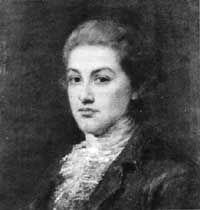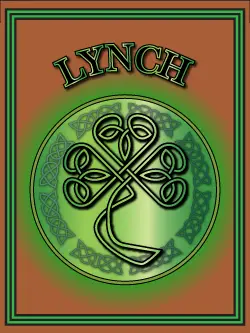The name Lynch means ‘Seafearer’ or ‘exile’. It has both Irish and English origins.
It could have derived from the names Linch or Lynche which have been recorded in both countries.
There are also names such as Linskey, Lynchy, Lindsay and Lynskey which are more specific to Ireland and in particular Co Mayo.
Descendants of the mariner
Lynch comes from the Gaelic O’Loignsigh which means ‘descendent of the mariner’. Labradh Longseach, who was a 6th century BC King of Ireland, is thought to be the mariner.
However, as the sea was a significant part of Irish life, the name O’Loignsigh originated in several parts of the country, all independently of each other.
Anglo-Norman de Lench
Another origin for the Irish name was the Anglo-Norman name ‘de Lench’. The de Lenchs arrived in Ireland in 12th century with the army of the Earl of Pembroke, more commonly known as Strongbow.
The name de Lench became Gaelicised to ‘Linseach’ and was later Anglicised to Lynch. In the middle ages the Lynch’s became one of the most important tribes of Galway. During the years 1484 and 1654, Galway had 84 Mayors with the surname Lynch.
The Lynch’s built castles in Galway and Connemara to protect their family as well as their wealth.
The Lynch families were chiefs of areas in Ulster and Munster during medieval times. The motto on the Lynch family crest reads ‘Semper Fidelis’ which means ‘Always Faithful’.
‘Lynching’ and ‘Lynch mobs’
Many people in Ireland believe the terms ‘lynching’ and ‘Lynch mob’ comes from James Lynch who was Mayor of Galway in 1493. He is said to have hanged his own son for murder when nobody else was willing to carry out the sentence.
However, Americans believe the term comes from Charles Lynch who was a Justice of the Peace in the 18th century. He was unforgiving of people who supported the British during the American War of Independence.
English Lynch’s
The English version of the name comes from the 7th century. It is thought to have come from either the old English word ‘hlinc’ which means ‘hill’ or from villages in Somerset and Sussex called Lynch and Linch. Both villages were built on hillsides.
The earliest recorded spelling of the name was in England in 1228 when Geoffrey Linch appeared in the ‘Fine Court Records of Suffolk’.
Famous Lynch’s from around the world

One of the men who signed the United States Declaration of Independence was Thomas Lynch Jr. He was a representative for South Carolina after his father, Thomas Lynch Sr, who was a Continental Congress man was unable to attend the signing due to illness.
Another politician was Jack Lynch who was twice voted Taoiseach of Ireland, firstly between 1966 and 1973 and then between 1977 and 1979. He was referred to by historian T. Ryle Dwyer as the ‘most popular Irish politician since Daniel O’Connell’.
He was also a very successful sportsman and is regarded as one of the best ‘dual players’ of all time. That is due to his success in two different sports, hurling and Gaelic football.
David Lynch
David Lynch is an American film director. He has had a long and successful career and enjoys a reputation as one of the most creative and surrealist directors in the business. Some of his key films include The Elephant Man, Blue Velvet and Mullholand Drive.
Legendary filmmaker Mel Brooks once hugged Lynch and said “You’re a mad man. I love you!” after he had seen Lynch’s cult film Eraserhead for the first time.
Lynch has been nominated for an Academy Award for ‘Best Director’ three times although he never won the prize. Recently he has taken up a music career and has received critical acclaim for his albums ‘Crazy Clown Time’ and ‘The Big Dream’.
